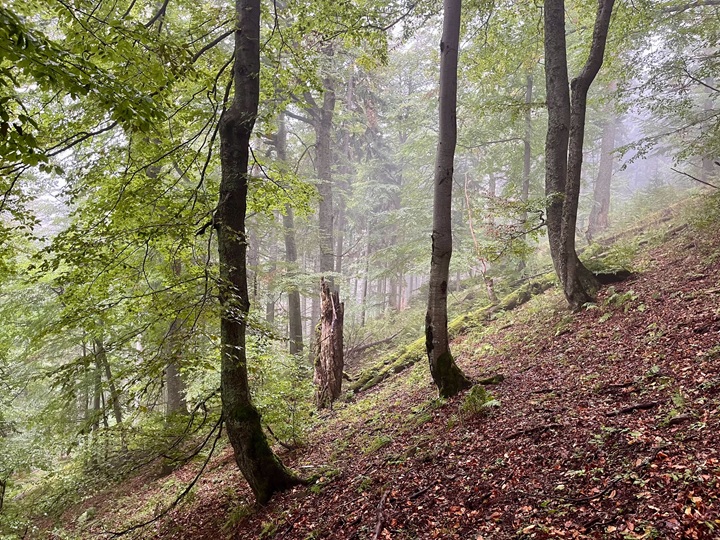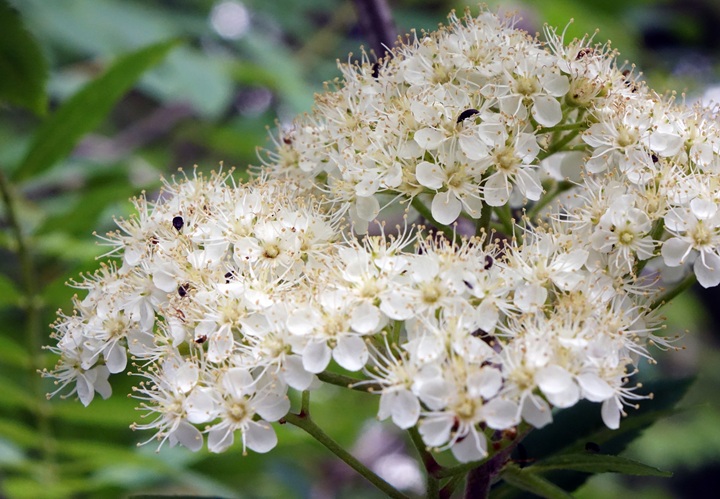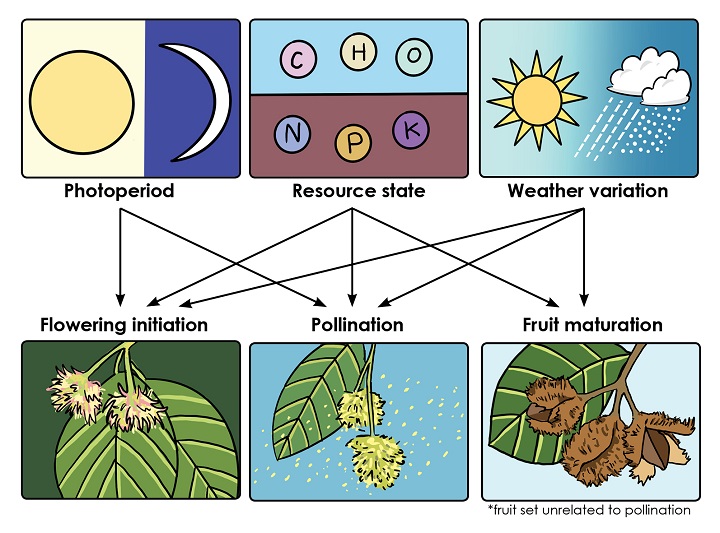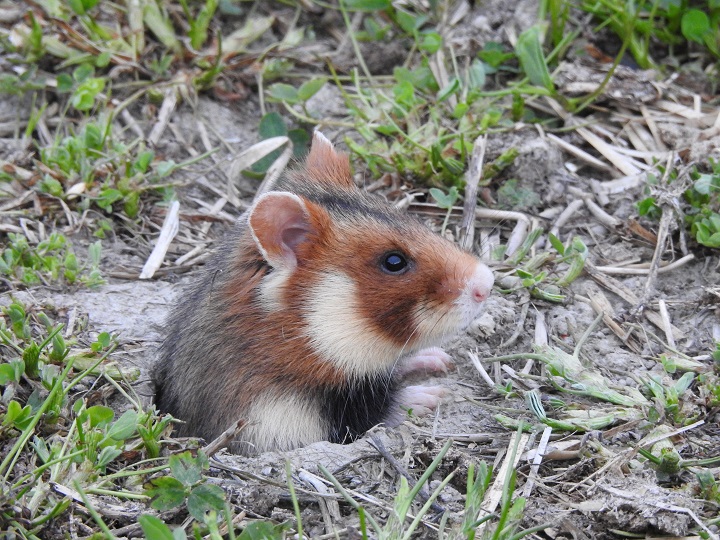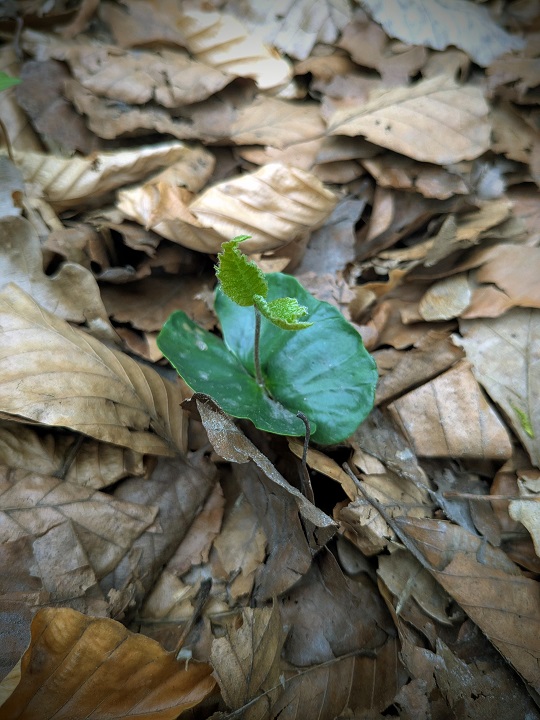In a new study published in Proceedings of the National Academy of Sciences, we show that in temperate European forests, years of seed failure are more strongly synchronized over space than mast years with high seed production. Using 36 years of data from over 400 sites and seven dominant tree species, we demonstrate that regionalContinue reading “PNAS: masting synchrony dominated by seed scarcity”
Category Archives: Uncategorized
Ecology letters: No refuge for European beech reproduction at the cold edge
Reproduction is essential for forests to recover from disturbance and adapt to climate change, yet it is often overlooked in climate impact assessments. Our new study, published in Ecology Letters, shows that climate warming has likely already reduced the natural year-to-year variation in seed production of European beech (‘masting’), with declines of up to ~54% underContinue reading “Ecology letters: No refuge for European beech reproduction at the cold edge”
Oikos: masting and insect pollination
Our new study, published in Oikos, shows how flexible pollinator communities sustain reproduction in the mast-seeding tree Sorbus aucuparia. Despite large year-to-year swings in flowering intensity, pollination efficiency remained high, driven by dynamic shifts in pollinator composition. Bumblebees dominated during abundant flowering, while solitary bees became proportionally more important when flowers were scarce. These results reveal thatContinue reading “Oikos: masting and insect pollination”
Nature Communications: global drivers of perennials reproduction
The press release associated with the paper! Global study reveals how weather drives plant reproduction—and how climate change may disrupt it. A major new study published in Nature Communications has uncovered the global patterns linking weather and reproduction in perennial plants. The research, led by Valentin Journé and Michał Bogdziewicz from Adam Mickiewicz University inContinue reading “Nature Communications: global drivers of perennials reproduction”
J Anim Ecol: Long-term trends in acorn production translate into more and heavier rodents
Over new study, based on 39-year of ecological monitoring in Maine, USA, analyzed white-footed mice (Peromyscus leucopus) abundance and associated forest and climatic data. We found that mouse abundance increased by ~67 % and average weight by ~15 % during the study period. These trends were driven primarily by rising acorn production — a resultContinue reading “J Anim Ecol: Long-term trends in acorn production translate into more and heavier rodents”
Maria Bogdańska joins our team as PhD student
Maria will join our team in October, working on the climate change biology of trees reproduction, which will include altitudinal gradients in fecundity, local adaptations, and more. Stay tuned for outcomes!
Annual Review of Ecology, Evolution, and Systematics: Masting
Our new review explores the phenomenon of mast seeding, where perennial plants produce highly variable and synchronized seed crops. We synthesize current knowledge on the mechanisms plants use to achieve this variability, from hypersensitivity to weather cues to interactions between pollination, fruit maturation, and internal resource dynamics. We highlight that variation in flowering effort, ratherContinue reading “Annual Review of Ecology, Evolution, and Systematics: Masting”
Global Ecology and Conservation: Hamster behavior and conservation
In the latest publication, co-authored by our colleague Urszula Eichert, you can read about the behaviour of captive-born European hamsters after being released into the wild. The study examined how sex, age, and the origin of the parent (from the wild or from captivity) affect the behaviour of the offspring in the first days afterContinue reading “Global Ecology and Conservation: Hamster behavior and conservation”
PNAS: solstice, growth, and masting
Our latest paper, Solstice, selection, and synchrony of seed masting, addresses how the summer solstice serves as a fixed, range-wide cue that synchronizes temperature sensing for flowering in European beech. Unlike growth processes, where local adaptation to environmental conditions is beneficial, masting relies on synchrony among individuals to enhance pollination efficiency and predator satiation. We showContinue reading “PNAS: solstice, growth, and masting”
MSCA Fellowship award
We’re thrilled to announce that Dr. Jessie Foest has been awarded a Marie Skłodowska-Curie Actions ERA Fellowship for her project FECUND, which tackles the urgent issue of forest regeneration under changing climate conditions. The project will explore how climate conditions influence early life stages of trees, from seed production to recruitment, combining field data, experimental work,Continue reading “MSCA Fellowship award”

